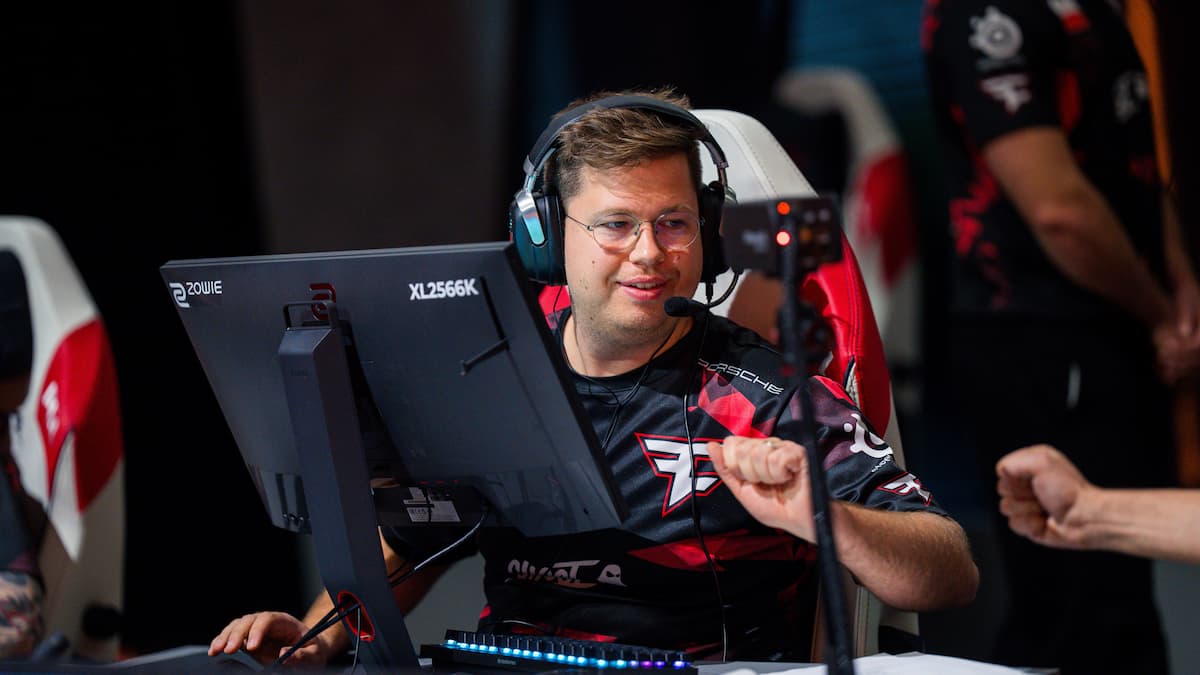This article is focused on the recent betting scandal, Valve’s stance & the current unregulated ecosystem for gambling which has several loopholes.

CS:GO recently had a skin betting scandal on www.csgolounge.com in which several players were accused, followed by an investigation by Valve in which they found top competitive players guilty and they got banned for an indefinite amount of time from all the Valve sponsored events, basically every event.
While Valve’s involvement in the matter was praised, it should also be taken into consideration that CSGOLounge.com is a 3rd party site which has absolutely no affiliation with Valve. Having said that, It was surprising to see them step in and take decisions on behalf of CSGL as it is the betting site’s responsibility to investigate any match fixing & ban anyone found guilty, same followed by the league whose match was in question. This definitely goes to show that Valve is taking eSports betting seriously, however, there are a lot of ways to exploit CSGL, now that Valve has shown interest I hope there would be some trading related updates to attempt to fix them, some of which I will be talking about.
-
Why couldn’t CSGL directly initiate a ban on the suspected players from their site and the league(s) involved?
CSGL can only track the bettors through their Steam profiles from the bets they’ve placed, the skins itself do not have unique IDs, making it impossible to track the history of owners for them. Unless the bets are placed directly from the players’ Steam accounts on their own match, CSGL cannot issue a ban. And the lack of a public trade history on item or profiles, makes it very easy for people to trade skins around to bet with their sub accounts or in this case, transfer it to their friends to place on their own match. Valve on the other hand, can flawlessly track the trade-history of any user, making it easier to find culprits. A public view of everyone’s trade history could solve this but then it would cause problems for traders in a way, where they would be able to see exactly how much people gained/lost from trades. Valve could take the lead from here.
Given that (on the first case) Valve banned ex-iBP and the related players, it raised an issue:
-
The witch-hunt followed by the community hurling abuses at players of every team for every upset afterwards.
Talking about legitimate upsets or pretty much any loss, although there have been a lot of convictions lately, the community shouldn’t be quick to judge the motives of players immediately on every upset that happens, especially in a game like CS where consistency is a huge factor. It affects the morale of these players because they get hurled with abuses on their social pages or HLTV/Reddit after a loss. One way to look at the cause of these outbursts would be the under-aged bettors and a lack of an age limit for bettors, seeing as you pretty much need a Steam account with CS:GO to get you started.
-
Legitimate sub-account bettors
The idea of betting with multiple Steam accounts is a common strategy high-rolling bettors use to maximize their profits on games they’re convinced will result in their favor. Given that CSGL’s only way to look for potential throws is through patterns in betting, this could possibly throw legitimate people under the bus who predict and bet with multiple accounts, if accused by mistake. More so, If there is any hint of a fixed match, it’s CSGOL’s duty to verify the accusation before calling it a throw publicly as this can severely defame any org and their players instantly. *cough* the @csgolounge twitter *cough*
-
Players were banned still there aren’t any safeguards in place on CSGL.
CSGL hasn’t updated any of their methods in tracking suspects and realistically speaking, the way Steam trading works, they will never be able to unless Valve updates trading items. Because after all that has happened, if any team decides to throw a match, they simply have to let their friend know, he will place bets in small amounts with his own skins from an account that isn’t friends with anyone, after the match is over the friend would directly sell the skins through PayPal and transfer the money, without Valve ever knowing. The match was fixed and there was no way to trace it back.
-
Valve has been banning only players associated with match fixing who made a direct profit from the scandals.
They have left other players, who knew about the throws, unpunished. Skadoodle is an example of a player who knew about a throw, took an active role in it, but was traded no skins. ShahZam who initially discussed about having information of the throw to a friend, which only got leaked after his friend whistleblew, if he hadn’t, this would’ve never came out, he even denied everything when the screenshots were first leaked. Caseyfoster is a person who made a profit, but did not play in an actual match.
Even Virtus.Pro who placed bets on themselves, or SmithzZz for secretly playing for Epsilon.FE, the punishment however long, should be equal for everyone, no matter how old the case may be.
This suggests that Valve is locking down matches which were rigged to have a potential outcome where people got a large influx of desired virtual items (skins).
-
Valve being biased towards CSGL
We all know Valve over the years have shown very little interest in 3rd party websites. And for a company that doesn’t comply with EU laws of online gambling, they not only investigated the matter personally, but they even handed out indefinite bans to 19~ competitive players. Given the fact that CSGL is pretty much illegal everywhere, it shows Valve values numbers more than the ecosystem of competitive games. Betting has it’s downsides but the real issue is not even betting itself, it’s the lack of proper regulation with all the existing betting sites.
Do these virtual items, or skins, have a value? If no, then the players effectively lost a match on purpose for no monetary gain. But this is not the case; these players are being punished because of the financial gain that was arranged. So the skins do have actual value.
CSGL is a Polish Company that is not registered for online gambling and does not have a licence as an online sportsbook. There is zero regulation surrounding CSGL. This also means that anybody can place the bets, including minors. Children of any age who own the game are able to gamble on outcomes of online video games because there is no age verification process involved at any level to use CSGL. This has also created an online gambling bubble for the U.S as it is banned according to the law.
A suggestion would be CSGL account registration with W9 (Tax ID number) information compulsory for age verification, on every account (Not actually making use of it, just to verify the age). This would successfully prevent multiple subs/possibility of a big betting scandal.
You can argue about Taxpayer’s ID number verification for skins would be “a bit much” but as long as virtual items have value, I see it as the only secure way of keeping children out of gambling.
-
Intricate rules for DDoS related scenarios.
Another issue that also needs to be addressed is the issue of match interruptions, playing with managers or other back-ups as stand-ins. Match interruptions, or more specfically DDoSing, greatly sways the outcome of a match. While some leagues have long regular seasons where teams can make up for the occasional missed match, CSGL keeps the bets locked in and the fate of the match is in the hands of the players to protect themselves. This is no longer a gamble on which team is the better team, but rather which teams have the most protected IPs. Other issues is that teams are often forced to play with last minute stand-ins or managers. If a team is unable to use their full roster for the entire duration of a match, the match should be cancelled on CSGL. In professional CS, players stay in the match from start to finish. There are no substitues at half time where players switch out a seat. This also means that teams do not actively practice with stand-ins. Under no circumstances should a team that is forced to play with a stand-in and is otherwise not using a complete roster, should have their game featured on CSGL. There are no safeguards in place to protect you bet in the event of a possible match result change due to a dispute.
-
Real money gambling is still a leeway for potential match fixers
The wall of text above was based on just skin betting, but the even bigger issue (imo) is real money bookies for esports. The recent bans by Valve were easier to investigate because there were items being traded which could be tracked by Valve, whether it be trading history or purchase. But the issue with betting real money and eSports is, there doesn’t seem to be any way of preventing people from fixing matches with bets placed on real gambling sites. While some offer a maximum payout limit so people don’t abuse the system, most 3rd party sites exist which have a bigger limit and just require your basic information to get you started. Virtual item related betting has brought CS:GO competitive viewership to where it is now so I don’t see any point in these real money bookmakers continuing to operate. We’re better off without them after skin betting is properly regulated and have updated their methods in terms of tracking bets and certain mechanisms in place to minimize any chances of a betting ring happening.
————————-
So that was it with my rant/article/debate whatever you want to name it, the purpose of this was to remind people that eSports and Gambling can go hand in hand, given that the betting sites abide laws and proper regulations to run a risk free ecosystem of competitive betting and if Valve implements mechanisms in place to prevent or minimize match fixing. Because as it happens, CSGOLounge is illegal in some places and very limited in terms of their investigations due to the untraceability of Steam items.
Btw here are a few articles I found off Google regarding virtual items and betting. Worth a read,
- http://www.pillsburylaw.com/publications/virtual-goods-gaming-and-the-trouble-with-secondary-markets
- http://venturebeat.com/2009/06/04/could-social-gaming-companies-get-nailed-for-illegal-gambling/






Published: Feb 6, 2015 09:34 pm